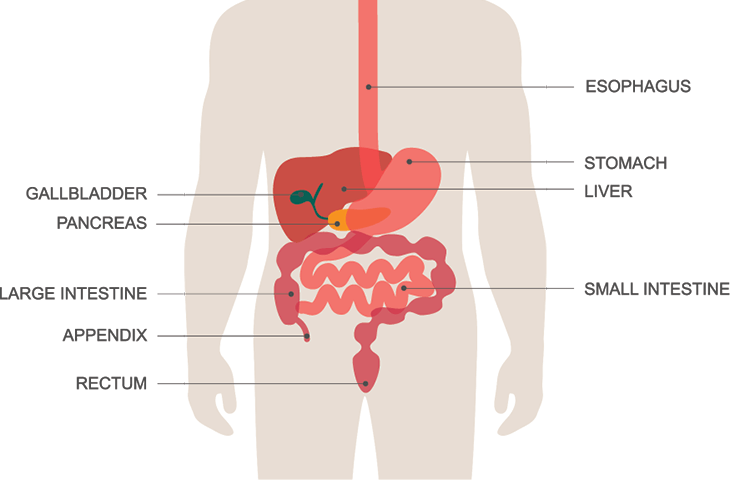Introduction
Living with a stoma can be a life-altering experience, not just for the private yet also for their families and caretakers. Comprehending the subtleties of stoma care is necessary to providing quality support. In this extensive guide, we will explore the fundamentals of stoma care and explore exactly how empathy and expertise can significantly improve the lifestyle for clients. This short article aims to equip caretakers and health care experts with expertise and useful understandings required for effective ostomy care
What is a Stoma?
A stoma is a surgically produced opening that attaches the digestive tract or urinary system tract to the abdominal wall surface. It works as a different pathway for waste elimination when typical paths are endangered complex bowel care due to different medical conditions like cancer cells, inflammatory digestive tract disease, or stressful injuries.
Types of Stomas
Colostomy: Produced from the colon. Ileostomy: Developed from the ileum. Urostomy: Draws away pee from kidneys.Each type has its details treatment demands, that makes correct training crucial for those associated with person care.
What is an Ostomy?
An ostomy describes both the procedure to develop a stoma and the resulting stoma itself. Ostomies can be momentary or irreversible depending upon the underlying wellness issue being treated.
What is an Ostomy Stoma?
The term 'ostomy stoma' especially pertains to the opening created during an ostomy treatment. It's essential to understand that a stoma may show up different than what one may anticipate-- its size, shape, and color can vary widely based on specific circumstances.
What is Ostomy Care?
Ostomy treatment incorporates all activities associated with handling a stoma efficiently while making certain convenience and health for people. This consists of transforming pouches, cleaning up around the stoma, keeping track of skin honesty, and psychological support.
Stoma Treatment Essentials: Sustaining Individuals with Empathy and Expertise
Effective stoma care includes both technical knowledge and emotional knowledge. Caring support can relieve anxiousness and build trust fund in between clients and caregivers.

Training Programs Available for Caregivers
Stoma Treatment Training for Carers
Caregivers play an essential role in handling daily ostomy care regimens. Specialized training programs equip them with required skills such as:
- Changing ostomy bags Identifying skin issues Dietary recommendations
Complex Bowel Care Training
For individuals requiring even more customized attention, courses like complex bowel care training concentrate on elaborate facets of bowel management while taking into consideration comorbid conditions.
NDIS Complex Bowel Care Training
In Australia, NDIS (National Disability Insurance Scheme) provides tailored training modules targeted at boosting abilities connected to intricate bowel management.

Bowel Treatment Management: Key Considerations
Effective bowel care management needs recognizing numerous variables influencing gastrointestinal wellness:
1. Diet
Maintaining a balanced diet plan plays an essential role in handling bowel function post-ostomy surgery.
2. Hydration
Adequate liquid intake assists maintain healthy digestion.
3. Drug Management
Certain medications might affect bowel patterns-- regular examinations with health care professionals are advisable.
Caring for an Ostomy: Practical Tips
Following simple yet reliable techniques can significantly improve individual comfort:
Regular Pouch Adjustments: Altering bags every 3-5 days prevents leakage. Skin Protection: Usage barrier creams or sprays to shield skin. Monitoring Outcome: Monitor feces consistency; seek advice from medical care specialists if problems arise.Understanding Complex Bowel Care Courses
Complex bowel care courses give in-depth expertise about taking care of problems associated with ostomies:
- How to take care of diarrhea or constipation Understanding dietary triggers Learning concerning bowel routines specific to individual needs
Ostomy Materials: What You Need?
Having the best materials available streamlines day-to-day monitoring:
Essential Products Include:
|Item|Objective|| --------------------|-----------------------------------|| Ostomy Bags|Gathers waste|| Skin Barriers|Safeguards surrounding skin|| Deodorising Products|Reduces odor|| Cleansing Solutions|Maintains hygiene|
Emotional Assistance in Stoma Care Fundamentals: Supporting People with Compassion and Expertise
Caring for someone with an ostomy usually calls for addressing psychological obstacles as well:
Listening Actively
Listening proactively not just confirms sensations yet fosters an encouraging environment where people really feel comfy discussing their concerns.
Encouraging Open Communication
Encouraging open interaction help in constructing count on in between client and caretaker, making it less complicated for them to share anxieties or pains connected to their condition.
FAQs Concerning Stoma Care Essentials
1. What type of training do caretakers need for stoma care?
Caregivers must go through customized training such as stoma care training programs that cover sensible abilities needed in everyday administration tasks.
2. Exactly how frequently must I alter my ostomy pouch?
Typically, an ostomy pouch should be changed every 3-- 5 days or earlier if there are leakages or irritation present.
3. Can I shower with my ostomy pouch?
Yes! A lot of modern-day ostomy pouches are waterproof; nonetheless, it's best to adhere to specific standards provided by your medical care expert pertaining to bathing practices.
4. What should I do if my skin around the stoma comes to be irritated?
Consult your healthcare provider promptly if you observe any kind of indications of irritability; utilizing obstacle lotions may aid reduce discomfort till you obtain professional advice.
5. Exist dietary limitations after getting an ostomy?
While most foods are typically allowable after recovery, it's advisable to stay clear of gas-producing foods at first till you identify what jobs best for your digestion system.
6. Where can I locate resources on intricate digestive tract care?
Many companies give resources on-line relating to complex bowel management training courses; speaking with doctor might likewise lead you towards added options available with NDIS programs or regional wellness services.
Conclusion
Navigating life with a stoma calls for not just technological expertise however likewise empathy and understanding from caregivers and health care experts alike. By participating in detailed training such as NDIS complex bowel care training or going to specialized workshops like complex bowel care courses, caregivers become geared up with important skills needed for efficient person support. As we have actually explored throughout this write-up entitled "Stoma Care Basics: Supporting Patients with Compassion and Experience," fostering empathy alongside experience lays down a foundation upon which high quality ostomy care thrives!